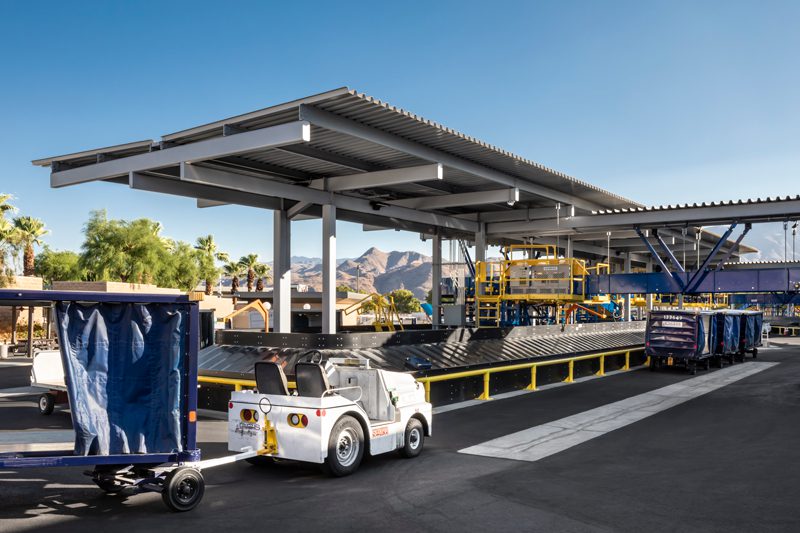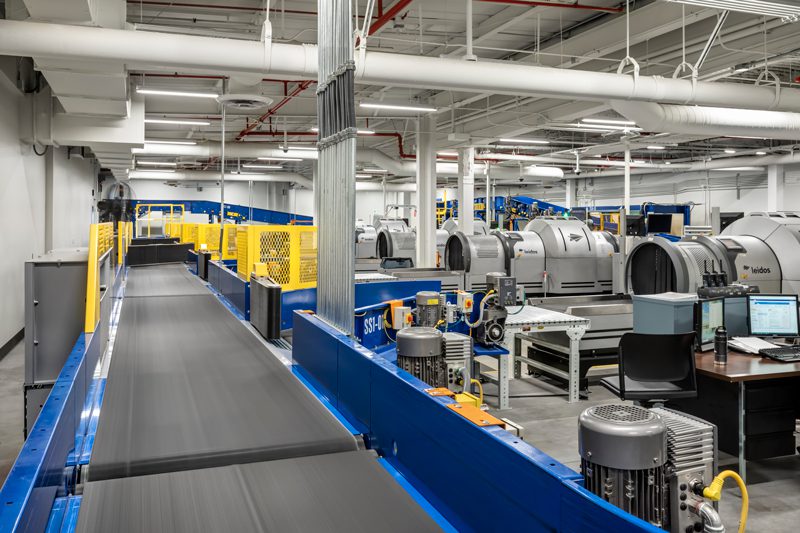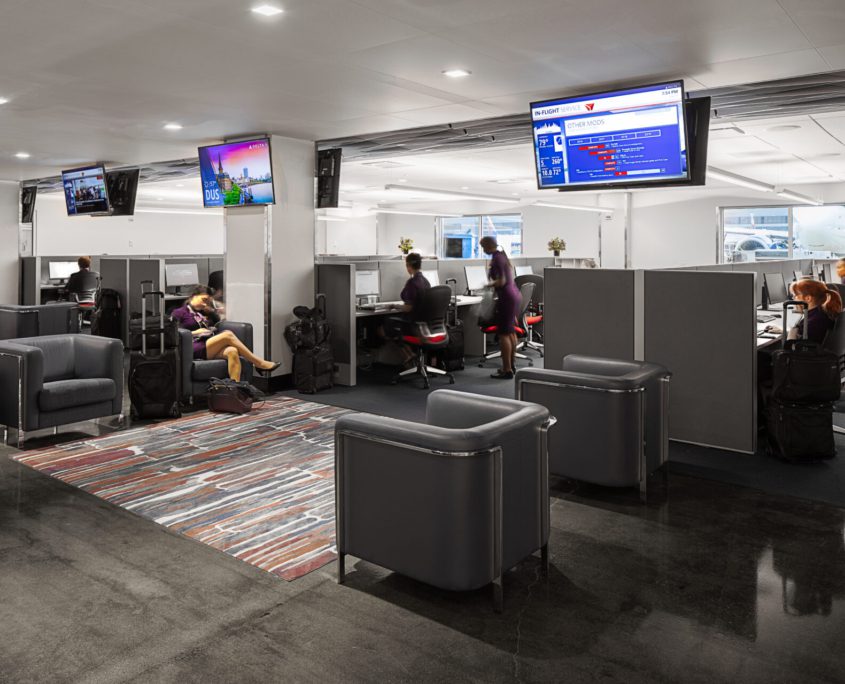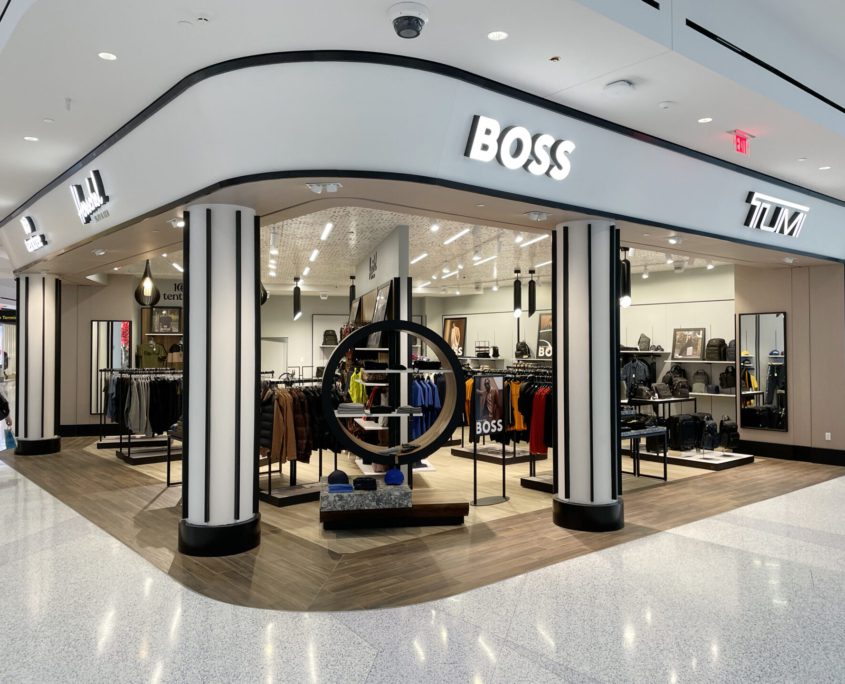Swinerton Positioned to Help Clients Take Flight
The aviation industry is facing a unique challenge. With aging infrastructure across the country requiring updates or complete replacement, stability, security, and communication have become paramount. Fortunately, the federal Bipartisan Infrastructure Law (BIL) passed in 2022 can help address these needs by allocating $15 billion in infrastructure funding over five years. The BIL will “upgrade our nation’s airports to strengthen our supply chain and prevent disruptions that have caused inflation… and will improve U.S. competitiveness, create more and better jobs at these hubs, and reduce emissions.”1
The United States government has not made this large of a financial commitment to its infrastructure since the Transcontinental Railroad in the mid-1800s and the Interstate Highway System in 1965. For the first time in decades, as a nation, we have the opportunity to focus on capital investments that will transform how people connect around the world for generations to come.
Of the $15 billion in total infrastructure funding available, 70% has been reserved for medium- to large-sized hub airports. This means airports across the United States will have access to much-needed funds to upgrade their existing infrastructure or build new facilities. With close to $23 billion of infrastructure needs throughout the industry, this influx of funds will go a long way toward keeping our airlines safe and secure while also allowing them to continue growing and meeting customer demands.
Since the government passed the Bipartisan Infrastructure Law, a total of $2.89 billion has become available for runways, taxiways, safety, and sustainability projects as well as terminal, airport-transit connections, and roadways. On March 9, the third round of the Bipartisan Infrastructure Laws airport grants was announced, releasing an additional $77 million to 49 airports nationwide in nearly every single city in which Swinerton is actively working or pursuing aviation projects, such as Los Angeles, Long Beach, Palm Springs, Sacramento, San Diego, San Francisco, Honolulu, Denver, Atlanta, New York, Dallas, Austin, Seattle, and Spokane.2
As stated in the Notice of Funding Opportunity (NOFO), projects will be selected “that increase capacity and passenger access; replace aging infrastructure; achieve compliance with the Americans with Disabilities Act and expand accessibility for persons with disabilities; improve airport access for historically disadvantaged populations; improve energy efficiency, including upgrading environmental systems and plant facilities; achieve Leadership in Energy and Environmental Design (LEED) accreditation standards; improve airfield safety through terminal relocation; and encourage actual and potential competition.”3
Although criteria for the application may vary slightly, there will be a large focus on the projects that are shovel-ready. Airports are evaluating their needs lists, looking at the additional funding source that the BIL provides, and reprioritizing their projects to meet the NOFO criteria.
“Security and safety functions and components have become clear themes that our teams are starting to see, everything from fire and life safety systems and egress, all the way up to aircraft rescue and firefighting facilities,” said Carrie Shaeffer, Vice President and National Director of Aviation at Swinerton.
The Bipartisan Infrastructure Law provides much-needed funds to upgrade existing facilities or construct new ones. It also provides opportunities for companies like Swinerton to bring stability through quality workmanship backed by safety protocols that guarantee project success. Investing in modern technology is essential if airports want to remain competitive in today’s global market—something that Swinerton can help them do with ease thanks to its extensive portfolio of successful aviation projects. Swinerton’s aviation clients’ focus has turned to a deeper level of operational readiness training where every component of the communication and emergency systems work 100% of the time.
“We are seeing all of our clients working to increase their capacity and efficiency in provisioning flights, which requires facilities and utilities,” Shaeffer said. “Airlines operators want people to have on-time flight departures and arrivals, and passengers want to have their snacks and iced drinks while they are on the plane as well.”
Several of Swinerton’s clients are looking for opportunities to upgrade and install new checked baggage inspection systems (CBIS), which are more efficient for TSA agents and improve scanning technologies for bags.
From providing temporary relief to pinch points in airport terminals with our tenant improvement projects, to addressing the needs of our clients that are experiencing tremendous growth requiring new ground-up facilities, Swinerton has been answering the aviation industry’s call. Our teams remain invisible to passengers and ensure that operations are maintained and not disrupted, delivering the highest level of airport capacity while elevating each space.
Swinerton’s recent work at Hartsfield-Jackson Atlanta International Airport (ATL) highlights our commitment to successful project execution without compromising the passenger experience. With over 75.7 million passengers flying through ATL, it has claimed the “world’s busiest and most efficient airport” title. The airport is the corporate headquarters, primary hub, and maintenance base (home) to one of the largest carriers, Delta Air Lines, and often becomes a second home for many travelers. Swinerton developed a partnership with Delta Air Lines to help elevate their spaces to better serve their passengers and employees with upgrades to several Sky Clubs and a new In-Flight Service Lounge.
The complexity of these renovations required extensive coordination with airport operations. Swinerton demonstrated its expertise to the airport, resulting in project wins with Atlanta Airlines Terminal Company (AATC) and city’s Department of Aviation as direct clients. Most recently, the City of Atlanta selected Swinerton as one of four on-call Master General Contractors to execute repairs, upgrades, and renovations for projects under $10 million across the entire airport for the next five years. This type of service program has successfully positioned Swinerton as a preferred contractor at other airports across the country, including Seattle-Tacoma International Airport, Denver International Airport, Los Angeles International Airport, and San Francisco International Airport.
Just four years ago, Swinerton was only pursuing aviation work in a handful of our offices. Today, our teams deliver roughly $400 million in aviation construction projects annually, representing about 10% of Swinerton’s total project volume. We have worked at 50 airports and airfields, collaborating as a trusted partner with private operators, government agencies, and commercial airlines across the nation. From complex hangar facilities to baggage handling systems, from luxury airline lounges to passenger ticketing stations—our in-house technical expertise and self-perform resources allow us to exceed the goals of our aviation clients amid an ever-changing industry. We will continue to help our clients take flight with the funding available through the BIL. io






